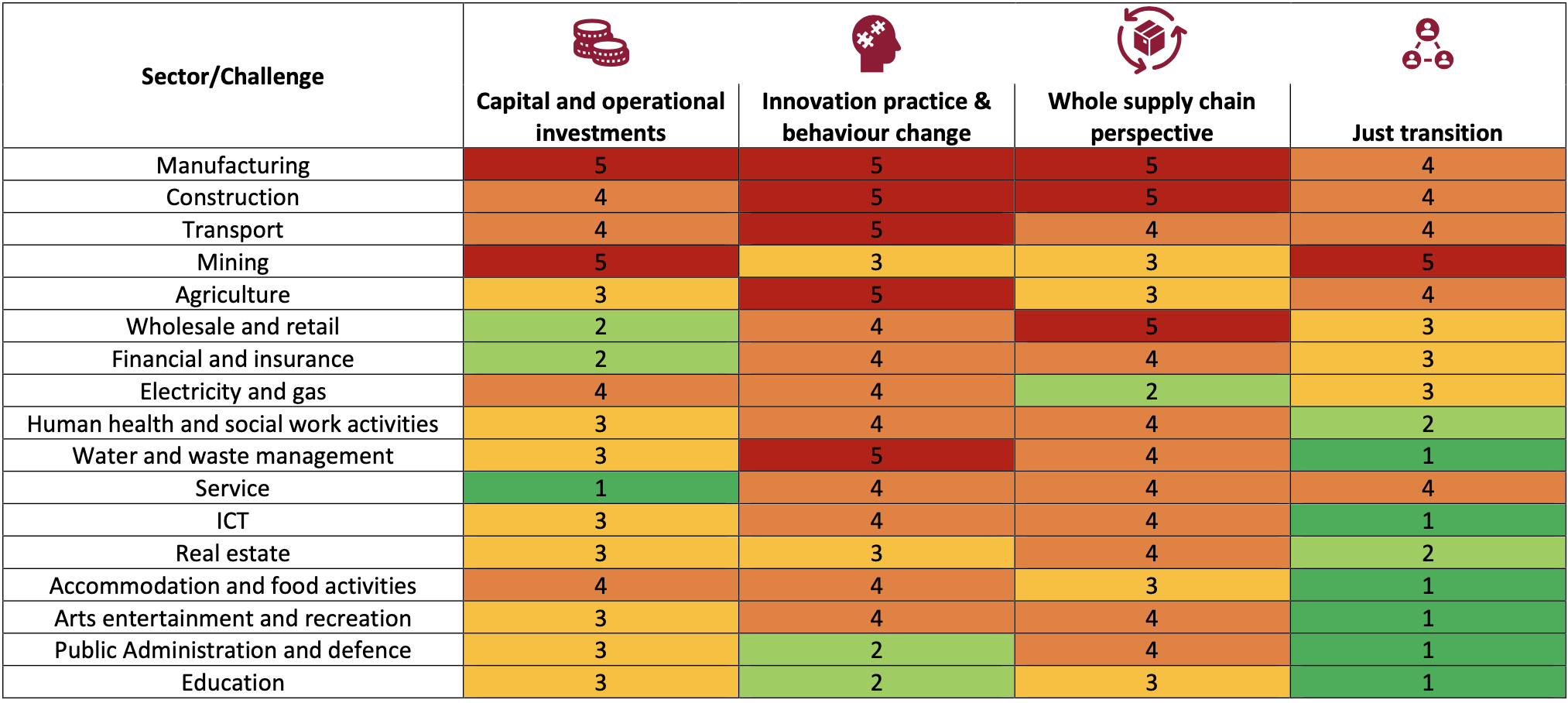The majority of UK industry sectors will miss 2050 net-zero targets unless there are significant further steps taken by Government, including acceleration of consumer education and behaviour change.
This is according to the Journey to Net Zero report, commissioned by insurer Zurich UK and undertaken by the University of the West of England. The study examines the 17 key UK industry sectors, outlining the scale of their net-zero challenge and the steps that could help them play catch-up on carbon emissions.
Most of the 17 industry sectors are currently off track to hit 2050 emissions targets, given they are expected to miss 2035 emission reduction targets by 197 megatons (131mt reduction, of a required 328mt). The report identifies manufacturing, construction and transport as needing particular attention given the steep carbon challenges they face. The report found that only five of the 17 industries analysed are currently decreasing emissions, five are stable and seven are actually increasing their levels of emissions year on year.
Shaun Hicks, chief risk officer at Zurich UK said: “The Government needs to publish a detailed roadmap to a net-zero economy, with sector-by-sector analysis and a timeline of decarbonisation expectations to contribute to the overall 2050 national target. Whilst the application of innovations such as hydrogen fuel and carbon capture have great potential in realising a green future, the government needs to provide further clarity to give businesses the time they need to prepare for the net-zero transition.”
The study highlights the interconnections that exist between industry sectors, necessitating Government to act as the coordinating voice in order to implement progressive initiatives. This is particularly relevant for some heavy industries within manufacturing. For example, carbon-intense cement production impacts the construction sector directly. This means that many industry’s challenges can’t be overcome without the adoption of a ‘whole of supply chain’ perspective.
The report strongly recommends focusing on enabling a shift in public attitudes in addition to finding technological solutions, and highlights the arts and entertainment sector as having a key role to play in influencing public opinion, encouraging responsible consumption and understanding what’s at stake for the earth.
Latest News
-
Premier League and Comic Relief partnership aims to improve children’s mental health
-
Russell Hobbs launches food poverty campaign in schools
-
Tottenham Hotspur and charities launch film to tackle mental health stigma
-
Cardfactory funds homelessness charity’s team of psychologists
-
Bingo firm raises £300,000 for the Stroke Association
-
Sainsbury’s links up with Comic Relief for festive recipe campaign
© 2019 Perspective Publishing Privacy & Cookies







Recent Stories